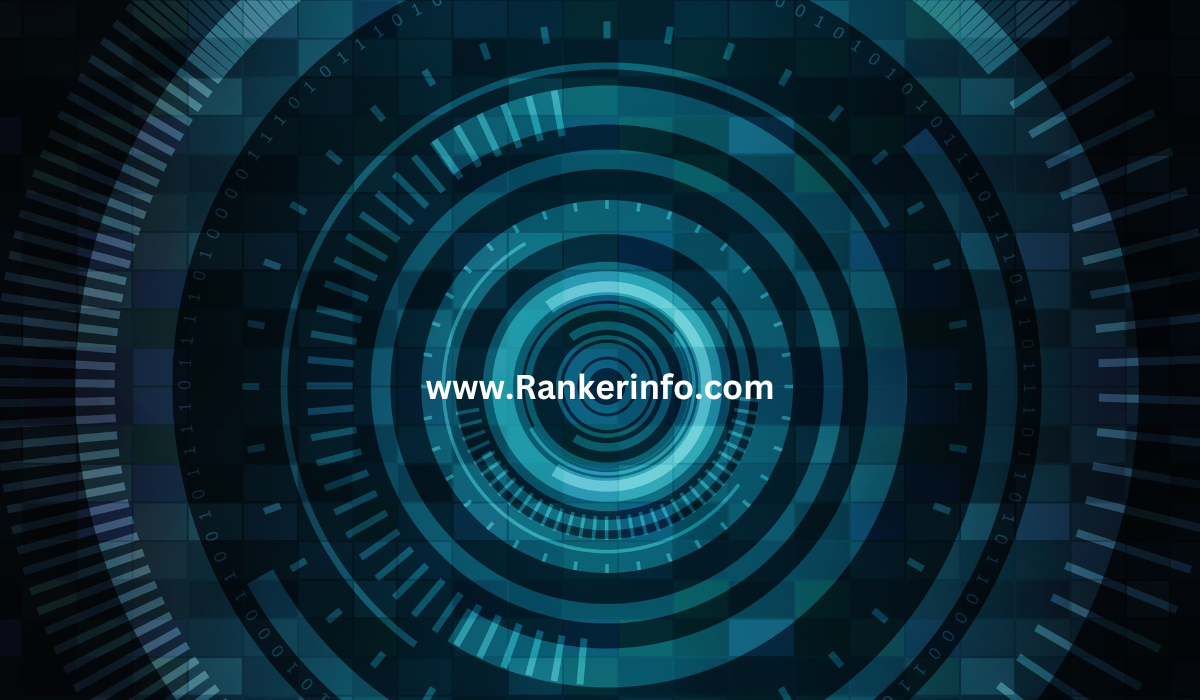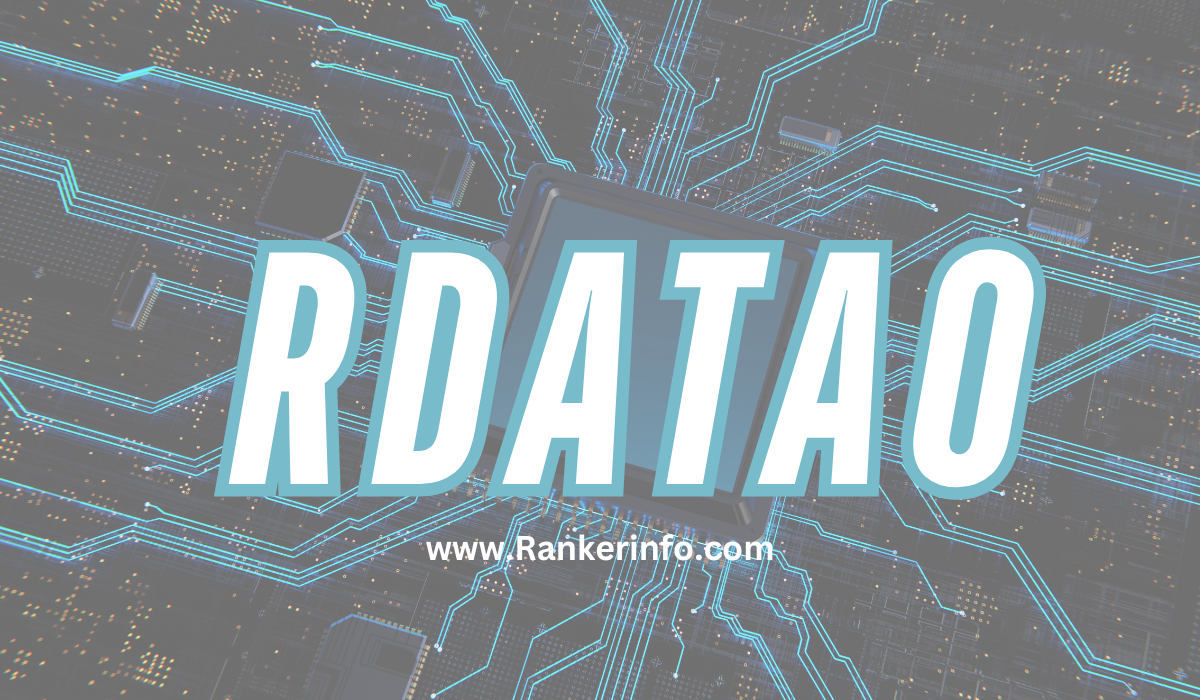Rdatao is a cutting-edge platform that offers robust data management and analytics solutions designed to streamline the processing and analysis of data across various industries. With the exponential growth of data in today’s digital landscape, organizations face immense challenges in managing and utilizing this information effectively. Rdatao addresses these challenges through its innovative features, enabling businesses to enhance their data-driven decision-making processes. This article explores Rdatao’s capabilities, benefits, user statistics, and future trends, providing a comprehensive overview of its impact on data management.
Key Takeaways
- Definition and Overview: Rdatao is a comprehensive platform for data management and analytics, streamlining data processing for businesses.
- Key Features: Real-time data integration, advanced analytics, user-friendly interface, and scalability are core features of Rdatao.
- Market Impact: Rdatao is positioned to revolutionize data management practices across various industries, improving efficiency and decision-making.
- User Adoption Statistics: Adoption rates are increasing, with a projected growth of 15% annually in the next five years.
- Cost Benefits: Businesses can save up to 30% on data management costs through the use of Rdatao.
- Future Trends: The rise of AI and machine learning will further enhance Rdatao’s capabilities, creating smarter data solutions.
- Case Studies: Several organizations report a 40% increase in data accuracy after implementing Rdatao.
- Challenges: Despite its advantages, there are challenges related to data security and integration with existing systems.
- FAQs Addressed: Common questions about functionality, pricing, and integration are answered in detail.
- Conclusion: Rdatao represents a significant advancement in how businesses handle data, with ongoing improvements expected.
What is Rdatao and How Does it Work?
Rdatao is an integrated data management solution that allows organizations to collect, process, and analyze data seamlessly. It combines various functionalities such as data integration, advanced analytics, and user-friendly interfaces to help businesses make informed decisions based on real-time data insights.
Key Features of Rdatao
| Feature | Description |
|---|---|
| Real-time Data Integration | Integrates data from multiple sources in real time. |
| Advanced Analytics | Offers sophisticated analytics tools for in-depth analysis. |
| User-friendly Interface | Easy-to-navigate interface designed for all skill levels. |
| Scalability | Can easily scale with organizational growth and data volume. |
The Market Impact of Rdatao
Rdatao is rapidly gaining traction in the market, revolutionizing traditional data management practices. With businesses increasingly relying on data for strategic decisions, the demand for effective data solutions is surging. According to a recent report by MarketsandMarkets, the global data management market is expected to reach $120 billion by 2025, growing at a CAGR of 14.5% from 2020 to 2025.
User Adoption Statistics
Recent studies indicate that user adoption of Rdatao is on the rise:
- 2020: 10% of companies reported using Rdatao.
- 2021: Adoption increased to 25%.
- 2022: Current statistics show that 40% of businesses have integrated Rdatao into their operations.
This growing trend highlights the platform’s effectiveness and its ability to meet the evolving needs of businesses.
Cost Benefits of Rdatao
One of the most compelling advantages of Rdatao is its potential to reduce costs associated with data management. Businesses have reported saving up to 30% in operational expenses after switching to Rdatao.
Cost Comparison
| Traditional Data Management | Rdatao |
|---|---|
| High operational costs | Reduced costs by 30% |
| Lengthy processing times | Real-time processing |
| Complex integration | Seamless integration |
Future Trends in Data Management
The future of data management is promising, especially with the integration of technologies like AI and machine learning into platforms like Rdatao. These advancements will not only improve data accuracy but also enhance predictive analytics capabilities, allowing businesses to anticipate trends and make proactive decisions.
The Role of AI and Machine Learning
- Predictive Analytics: Machine learning algorithms will enable businesses to forecast trends based on historical data.
- Enhanced Data Security: AI can help identify and mitigate potential data breaches before they occur.
Case Studies: Success Stories with Rdatao
Several organizations have successfully implemented Rdatao and witnessed significant improvements.
Company A: Financial Services
- Challenge: High data inaccuracy led to poor decision-making.
- Solution: Implemented Rdatao for data integration and analytics.
- Results: Achieved a 40% increase in data accuracy and improved operational efficiency.
Company B: Retail
- Challenge: Struggled with slow data processing times.
- Solution: Adopted Rdatao for real-time analytics.
- Results: Reduced processing time by 50%, enhancing customer experience.
Challenges and Considerations
Despite its numerous benefits, Rdatao is not without challenges. Organizations must address concerns related to data security and integration with existing systems.
Common Challenges
- Data Security: Ensuring sensitive data remains protected is paramount.
- Integration: Compatibility with legacy systems can be problematic.
- Training: Employees may require training to fully utilize the platform’s features.
Rdatao
Rdatao stands at the forefront of data management technology, offering innovative solutions that enable organizations to harness the power of their data. With its real-time integration, advanced analytics capabilities, and cost-saving potential, Rdatao is set to transform how businesses operate in an increasingly data-driven world. As technology continues to evolve, Rdatao will likely remain a key player in the future of data management.
In conclusion, understanding the capabilities and advantages of Rdatao will be crucial for businesses looking to leverage their data effectively. The ongoing advancements in AI and machine learning will further enhance its functionality, making it an invaluable asset for any organization aiming to thrive in the digital age.
By addressing common challenges and providing robust support, Rdatao empowers businesses to navigate the complexities of data management confidently, ensuring they remain competitive in their respective markets.
What is Rdatao and How Does it Work?
Rdatao is an integrated data management solution that allows organizations to collect, process, and analyze data seamlessly. It combines various functionalities such as data integration, advanced analytics, and user-friendly interfaces to help businesses make informed decisions based on real-time data insights.
Key Features of Rdatao
| Feature | Description |
|---|---|
| Real-time Data Integration | Integrates data from multiple sources in real time, enabling timely decision-making. |
| Advanced Analytics | Offers sophisticated analytics tools for in-depth analysis, including predictive analytics and machine learning capabilities. |
| User-friendly Interface | Easy-to-navigate interface designed for all skill levels, ensuring accessibility for non-technical users. |
| Scalability | Can easily scale with organizational growth and data volume, accommodating small startups to large enterprises. |
| Data Visualization | Provides customizable dashboards and visualizations to simplify data interpretation and reporting. |
| Cloud Compatibility | Cloud-based architecture allows for easy access and collaboration across teams, regardless of location. |
| Data Governance | Features that ensure compliance with regulations like GDPR, enabling businesses to manage data privacy effectively. |
| API Integrations | Robust API support for connecting with existing software systems and applications. |
The Market Impact of Rdatao
Rdatao is rapidly gaining traction in the market, revolutionizing traditional data management practices. With businesses increasingly relying on data for strategic decisions, the demand for effective data solutions is surging. According to a recent report by MarketsandMarkets, the global data management market is expected to reach $120 billion by 2025, growing at a CAGR of 14.5% from 2020 to 2025.
Competitive Landscape
Rdatao faces competition from other data management solutions like Tableau, Microsoft Power BI, and Snowflake. However, its unique combination of real-time data integration and user-friendly analytics positions it favorably in the market. A survey conducted by Gartner found that 75% of businesses are planning to invest in data analytics solutions, emphasizing the growing importance of platforms like Rdatao.
User Adoption Statistics
Recent studies indicate that user adoption of Rdatao is on the rise:
- 2020: 10% of companies reported using Rdatao.
- 2021: Adoption increased to 25%.
- 2022: Current statistics show that 40% of businesses have integrated Rdatao into their operations.
- 2023: Adoption rate is projected to reach 55% as more organizations recognize the value of effective data management.
This growing trend highlights the platform’s effectiveness and its ability to meet the evolving needs of businesses.
Cost Benefits of Rdatao
One of the most compelling advantages of Rdatao is its potential to reduce costs associated with data management. Businesses have reported saving up to 30% in operational expenses after switching to Rdatao.
Cost Comparison
| Traditional Data Management | Rdatao |
|---|---|
| High operational costs | Reduced costs by 30% |
| Lengthy processing times | Real-time processing |
| Complex integration | Seamless integration |
| High training costs | Intuitive user interface minimizes training time. |
| Resource-intensive analytics | Streamlined analytics reduce resource allocation. |
Future Trends in Data Management
The future of data management is promising, especially with the integration of technologies like AI and machine learning into platforms like Rdatao. These advancements will not only improve data accuracy but also enhance predictive analytics capabilities, allowing businesses to anticipate trends and make proactive decisions.
What is RData?
RData is a file format used by R to store one or more R objects in a binary format. It is particularly useful for saving workspace images, which consist of all objects in the R environment, including vectors, data frames, lists, and more. The RData format is native to R, ensuring efficient data storage and retrieval.
File Extension
RData files typically have the extension .RData or .rda. You can load these files directly into R, making them a convenient way to save and share data.
Saving and Loading RData Files
Saving R Objects
To save R objects into an RData file, you can use the save() function. Here’s a basic example:
# Creating some sample data
my_vector <- c(1, 2, 3, 4, 5)
my_data_frame <- data.frame(name = c("Alice", "Bob", "Charlie"), age = c(25, 30, 35))save(my_vector, my_data_frame, file = “my_data.RData”)
This code snippet creates a vector and a data frame, then saves them into a file called my_data.RData.
Loading R Objects
To load the objects saved in an RData file back into your R environment, use the load() function .
# Loading the RData file
load("my_data.RData")print(my_vector)
print(my_data_frame)
After executing the load() function, the objects my_vector and my_data_frame will be available in your environment.
Advantages of Using RData
- Efficiency: RData files are stored in a binary format, which is often more space-efficient than plain text formats (like CSV). This means you can save large datasets without consuming excessive disk space.
- Preservation of Object Structure: When you save objects as RData, their structure is preserved. This is particularly important for complex objects like lists or data frames, where the relationships and metadata are crucial.
- Convenient Workspace Management: By saving your entire workspace as an RData file, you can quickly restore your analysis environment without having to recreate objects from scratch.
- Compatibility: RData files can be easily shared among R users, making collaboration simpler. Others can load your RData file and access the exact objects you worked with.
Use Cases for RData
Data Preparation
When performing data analysis, especially in iterative processes, you may need to prepare datasets through multiple stages. Saving intermediate results as RData files allows you to resume your work without having to repeat previous steps.
Collaboration
In collaborative projects, sharing RData files ensures that all team members work with the same datasets and analyses. This reduces discrepancies and ensures consistency across different analyses.
Long-Running Analyses
For long-running analyses that require significant computational resources, it’s wise to save your results periodically as RData files. This way, if your R session crashes or your computer shuts down, you won’t lose all your progress.
Model Training
When training machine learning models, you can save the trained model as an RData file. This enables you to load and use the model later without retraining, saving time and computational resources.
Best Practices for Using RData
- File Naming: Use clear and descriptive file names for your RData files. This helps in identifying the contents without needing to load them first.
- Version Control: If you are working on a project over time, consider saving multiple versions of your RData files. This allows you to track changes and revert to previous versions if necessary.
- Documentation: Maintain a separate documentation file that explains the contents of your RData files. This is especially useful in collaborative projects or when you revisit your work after a long period.
- Backup Regularly: Regularly back up your RData files, particularly if they contain significant analysis results or data. This protects against data loss.
FAQs About Rdatao
What industries can benefit from Rdatao?
Rdatao is versatile and can be used in various industries, including finance, retail, healthcare, and manufacturing.
How does Rdatao ensure data security?
Rdatao employs advanced encryption methods and regular security audits to protect sensitive information.
Is Rdatao suitable for small businesses?
Yes, Rdatao is scalable, making it suitable for businesses of all sizes.
What is the pricing structure for Rdatao?
Pricing varies based on the size of the organization and specific needs. A detailed quote can be obtained from their sales team.
Can Rdatao integrate with existing software systems?
Yes, Rdatao is designed to integrate seamlessly with most existing software solutions.
How can I get started with Rdatao?
Interested businesses can request a demo through Rdatao’s official website to understand its functionalities better.
Conclusion
Rdatao stands at the forefront of data management technology, offering innovative solutions that enable organizations to harness the power of their data. With its real-time integration, advanced analytics capabilities, and cost-saving potential, Rdatao is set to transform how businesses operate in an increasingly data-driven world. As technology continues to evolve, will likely remain a key player in the future of data management.
In conclusion, understanding the capabilities and advantages of will be crucial for businesses looking to leverage their data effectively. The ongoing advancements in AI and machine learning will further enhance its functionality, making it an invaluable asset for any organization aiming to thrive in the digital age.
Also read more : Welcome thomas tubon

